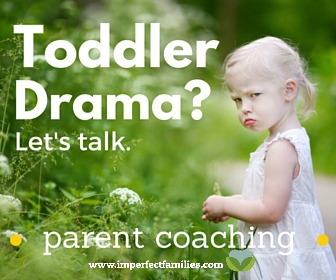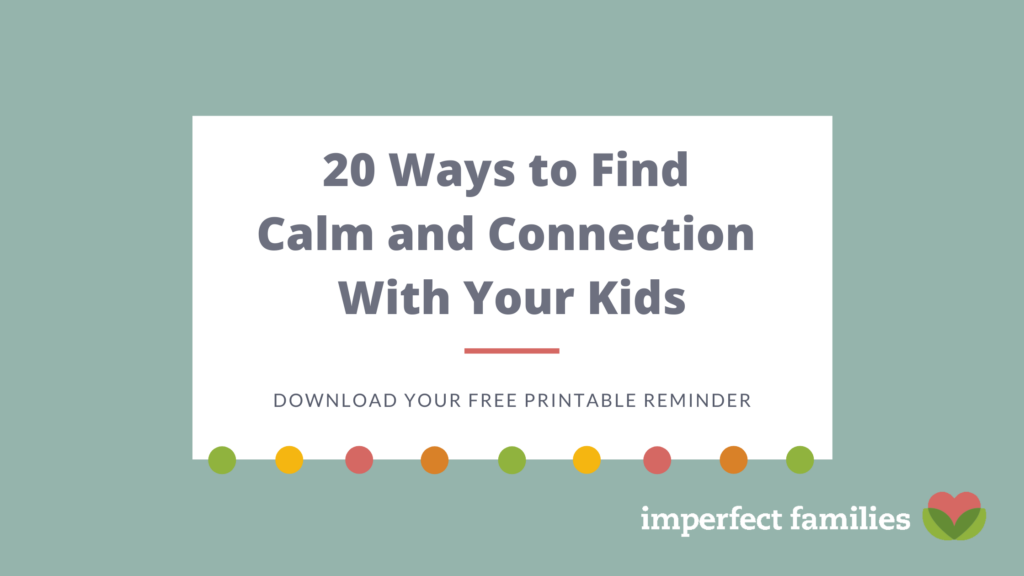Wondering what to do instead of timeouts? Here are 7 positive discipline alternatives to time out you can use starting today!
You know all of the “rules” for a timeout. The chair, the timer, the number of minutes per age.
It seems like you’re constantly putting your child in time out, but nothing’s changing. In fact, it seems to be getting worse.
Now, he resists the time out chair. He runs away from you (sometimes laughing as he goes!). And you’re losing your cool.
Everyone in your circle of friends and family believes that time-out is the magic discipline bullet, but you’re starting to question it. It’s not working and it’s a lot of effort on your part.
There has to be another way.
7 Alternatives to Time Outs
- Time In: Instead of pushing your child away to another room, pull them closer to you. Use your calm presence to help them get back to calm. Some kids may enjoy being cuddled, others may not. Open up the conversation by using words like, “It looks like taking turns is not working well today” or “You seem frustrated that Sarah has more beads than you.” Learn more about empathy.
- Look at the Basics: Tantrums, arguments and other behavioral challenges may be a result of lack of sleep, hunger, stress, over-stimulation or need for attention. Consider meeting one of these needs first. Your child’s behavior may be dramatically improved after a healthy snack, taking a break to relax in a quiet room or spending some one-on-one time with you. Learn more about connection.
Related: 25 things that impact your child’s behavior (and have nothing to do with your parenting)
- Teach: A misbehaving child is a frustrated child. He may be unable to come up with a better way to handle the problem in the moment. Working together when everyone is calm, parents can model sharing, taking turns, asking for something politely, etc. Simple ideas like flipping a coin or putting ideas in a hat may help him feel empowered when he is faced with the situation next time.
- Delay Your Reaction: Not every infraction requires a consequence or even a response from you. And, your response does not need to be immediate. Sometimes our kids are just having a bad day, we are feeling stressed and overwhelmed or we just need a moment of quiet. No, it’s not ok for your child to yell at you, but it is ok to wait until you are both rested and calm to talk about it.
Related: The most effective way to teach your child a lesson.
- Clear the Environment: Many challenges can be avoided by changing something in the child’s environment. A toddler throwing blocks may need to be directed to a different activity; a toy may need to be removed from a child if he is using it to hurt others; sweet snacks may need to be stored in a different location – or no longer purchased from the store.
- Offer a Do-Over: Kids react impulsively, they make decisions based on emotion rather than thinking it through, and they make lots of mistakes. Rather than expecting perfection, give your child a chance to try again. A simple, non-judgmental response sends the message that they are loved even when things don’t go as planned. (This applies to yourself as a parent too!)
- Notice the Good: It’s easy to get stuck in a negative-thinking mindset. We see our kids as “bad” or “troublemakers” and suddenly, they fill this role. You can break the cycle by focusing on your child’s positive aspects. Things they are doing RIGHT or WELL. Limit your “no’s,” saving them for serious offenses, and rephrase your answers in a positive way. Work to have at least 5 positive interactions with your child per day for every 1 nag, argument, power struggle or negative statement.
Related: Stop trying to find the perfect consequence.
Why timeout is ineffective discipline.
We’ve been told over the years that time out is the “best way” to deal with toddler tantrums, children who talk back, and kids who don’t do as they’re told. Unfortunately, there are three big problems with using timeouts for kids:
- Sending a child to their room often sends the message, “You’re a bad child.“
- Time Outs often fuel a power struggle between parent and child.
- It removes the child from the situation, rather than teaching them how to handle the situation.
Many parents ask: “Yeah, but…how will I teach him that what he did was wrong? How will I show her who’s boss?”
Eliminating timeout from your parenting tool belt may feel like you’re handing over your parental authority. Thankfully, that is not the case!
You can still set limits with kindness. You can still teach your child right from wrong. AND you can keep the relationship with your child strong and healthy.
Related: Why child needs you to step up (but it’s not what you think)
Is there a place for Time Out?
I am all in favor of taking time to calm yourself down or giving yourself space to avoid hurting a child or yelling in anger.
I believe that many parents need to walk away and take a break in order to deliver a respectful and loving response.
I also think that some children can be taught the value of taking a break. Children who are easily overwhelmed in social situations can learn how to respectfully leave a play date or identify when they are getting overstimulated. Other children may come to realize that taking time to play alone in their room for a while helps them get along with their siblings.
However, this message may never be received if the timeout is used as punishment, forced or required.
Deciding to give timeouts a break, you explore some of these alternatives with your child. At first, it’s a little rocky, you don’t feel extremely confident and he seems to be pushing back more.
But, with time, you notice less and less resistance. In fact, you’re having more positive time together and less need for discipline.
Of course, no one’s perfect. But you’ll take this progress over the power struggles any day.
Need more support?
It’s not easy breaking tradition or using positive parenting strategies instead of timeouts, but you don’t have to make these changes alone! Schedule an online parent coaching session today and find support, accountability, and a safe place to problem solve through these challenges. Learn about my money back guarantee and schedule a session today!





Comments have been turned off to retain the privacy of all families. If you have a question or comment on the topic, you're always welcome to contact me.